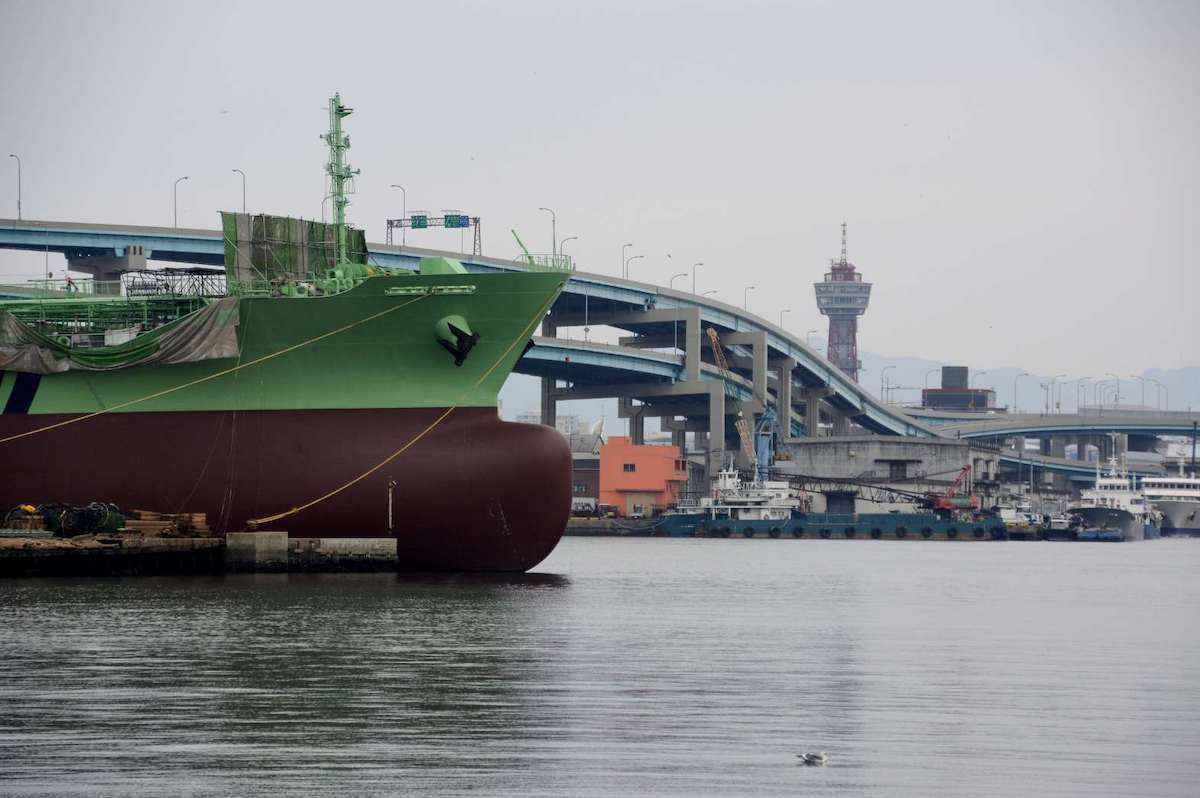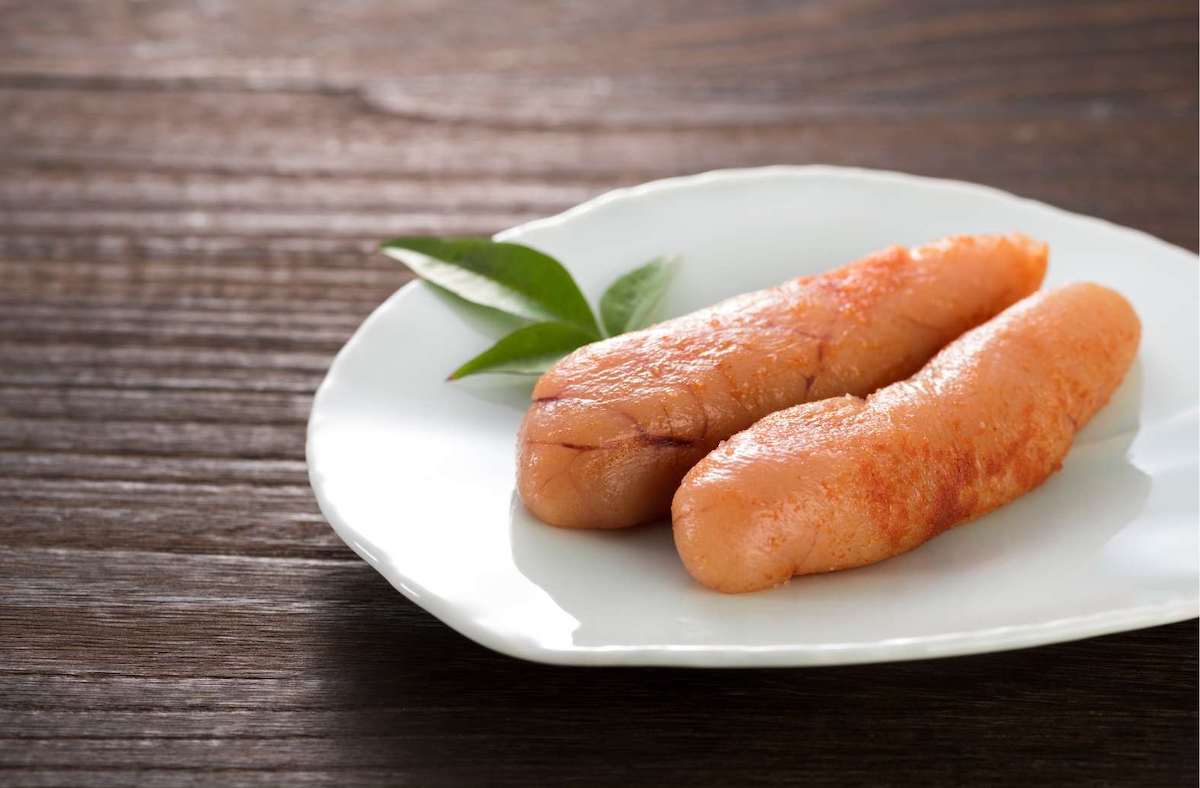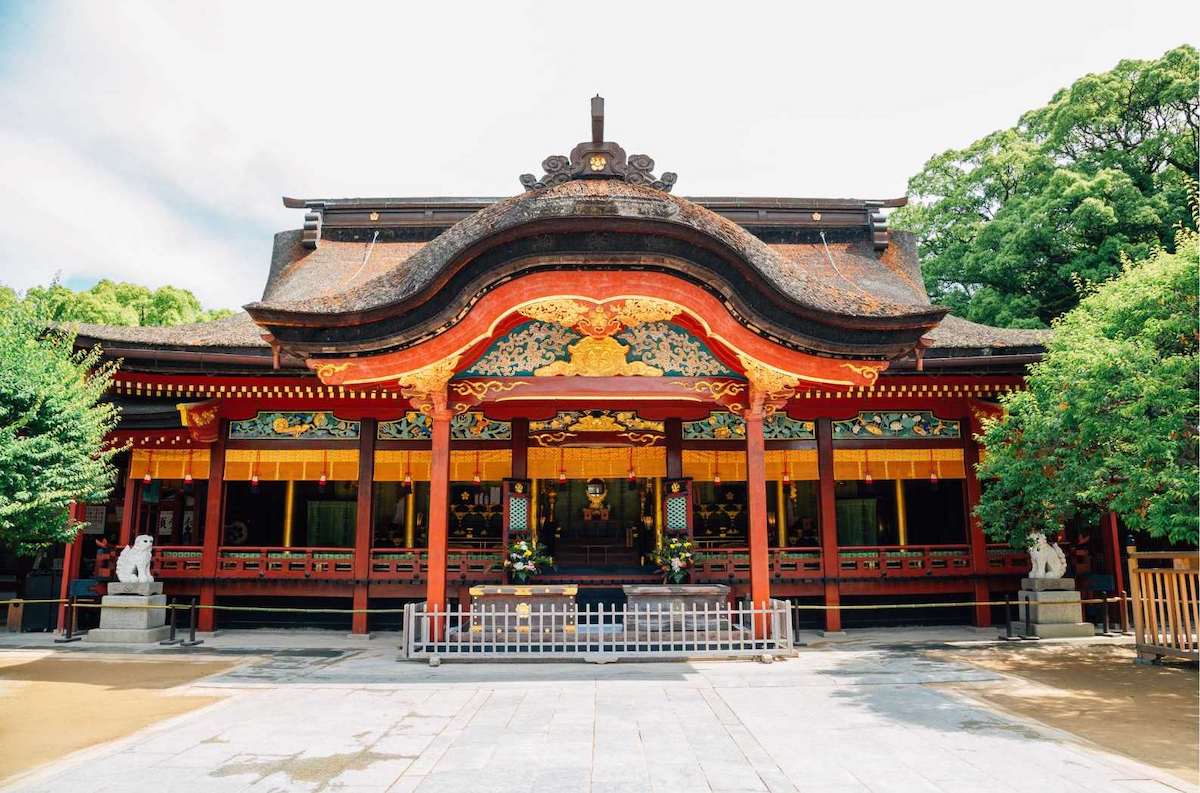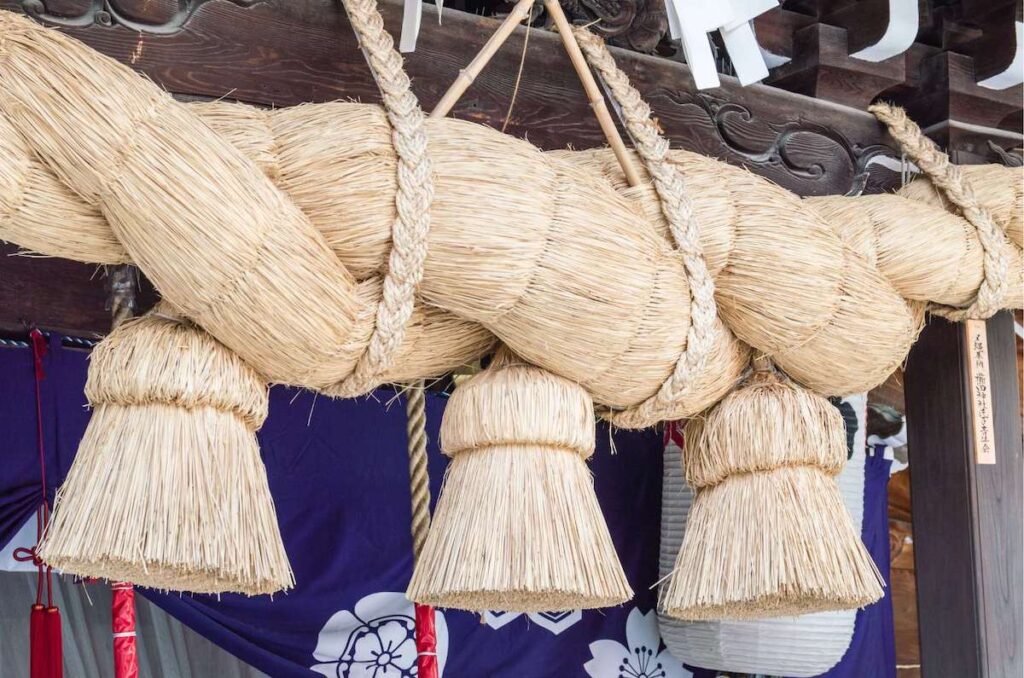Fukuoka, with over 1,500 years of recorded history, is an important center of Japanese heritage and culture. Located on Kyushu Island in southwestern Japan, the city was founded as a medieval castle town and grew into a major port.
Fukuoka reflects its long history through historic sites like Kushida Shrine, Fukuoka Castle ruins, and the Hakata Machiya district. The city also preserves its culture through practices like the local Hakata-ben dialect and Hakata-ryori cuisine, along with ancient festivals.
Though now modern, echoes of Fukuoka’s past remain woven into daily life. The city offers a direct experience of Japan’s persisting cultural traditions.
Fukuoka in Japanese history
Fukuoka has been a vital city in Japan for centuries. Located on the northern shore of Kyushu island, Fukuoka was a central hub for regional trade and commerce, dating back to its days as a castle town in the 16th century.
In the 12th century, Fukuoka rose to prominence under the rule of samurai warrior Kuroda Nagamasa. He built the formidable Fukuoka Castle, which became a key military stronghold. For centuries after, the area thrived as an important political and economic center, though it did suffer damage from a major fire in the 17th century.
During the Meiji Restoration in the late 19th century, Fukuoka grew rapidly as Japan modernized. The city was designated an urban prefecture, and the port expanded to increase trade. Railways were built connecting Fukuoka to other parts of Japan. Though damaged during World War II, Fukuoka remained a vital industrial center.

As one of Japan’s largest and most influential cities for over a millennium, Fukuoka was the site of many pivotal events in Japanese history and culture.
Fukuoka and Hakata – 2 histories, now 1 city
Although today they form one city, Fukuoka and Hakata were originally distinct, each with their own unique history and culture.
The Hakata area on the coast was a trading port as early as the 8th century, conducting trade with China and Korea. Hakata was the main port of call for visiting ships and developed into a major merchant city during the middle ages.
Meanwhile, the Fukuoka area centered on Fukuoka Castle further inland. It served as the political and military center. The Fukuoka clan ruled the region for centuries.
In 1889, as Japan modernized, the two areas merged to form one city called Fukuoka. Though starting as independent settlements, Hakata and Fukuoka complemented each other – one a port town, the other administrative. This combination made Fukuoka an important center of culture and commerce within Kyushu and Japan.
Fukuoka post-War
Like many Japanese cities, Fukuoka suffered extensive damage during World War II. Allied bombing raids targeted industrial and transportation infrastructure. While rebuilding efforts started soon after the war, Fukuoka struggled economically during the post-war occupation period.
However, by the mid-1950s, Fukuoka began to recover and enter a period of rapid growth. With investment in infrastructure and industrial facilities, it re-established itself as an important transportation hub and manufacturing center. Major corporations such as Toyota opened factories in Fukuoka, further spurring development.
As the city modernized, Fukuoka also emerged as a cultural center of Kyushu. Musicians like Hibari Misora became nationally famous. Fukuoka also gained recognition for its sporting events, cuisine, and festivals. The annual Hakata Gion Yamakasa festival, dating back over 800 years, was designated an Important Intangible Folk Cultural Property. This post-war rebirth cemented Fukuoka’s economic and cultural leader status in Kyushu.
Cultural Heritage of Fukuoka
Fukuoka boasts a diverse cultural heritage developed over its long history. Some highlights include:
- Hakata ningyo – Intricate dolls made by skilled craftsmen for over 800 years. The dolls reflect historical figures and styles.
- Hakata textiles – Silk, hemp, and cotton were produced in the region for centuries. Hakata ori weaving and yuzen dyeing are renowned techniques.
- Ceramics– Hakata is known for its distinctive white porcelain and pottery.
- Cuisine– Fukuoka cuisine features tonkotsu ramen, motsunabe, mentaiko, and fresh seafood.

- Festivals– Ancient festivals still celebrated today include Hakata Gion Yamakasa and Kushida Shrine’s Tamaseseri.
- Architecture– Historic buildings include the Kushida Shrine, Tofukuji temple, and the remaining castle walls.
Fukuoka’s diverse cultural heritage remains alive in its festivals, cuisine, arts, and crafts.
Fukuoka’s Place in Japanese Literature and Art
As a major urban center, Fukuoka has contributed greatly to Japanese arts and literature over the centuries.
In literature, renowned poets connected to Fukuoka include Hakushu Kitahara, one of the most popular poets during the Taisho and early Showa periods known for his emotionally evocative verses.
Fukuoka’s artistic legacy is equally impressive. During the Edo period, the city nurtured artists like calligrapher and poet Konoe Nobutada. In the modern era, notable Fukuoka-born painters include nihonga artists Yokoyama Taikan and Nishimura Goun, who blended traditional techniques with contemporary themes.
Today, Fukuoka houses esteemed cultural venues such as the Fukuoka Art Museum and Fukuoka Asian Art Museum, displaying works from ancient Buddhist sculptures to contemporary installations. The Hakata Traditional Craft and Design Museum highlights the city’s historic handicrafts like Hakata-ori textiles and dolls.
From venerable literary figures to traditional crafts, Fukuoka has made invaluable and diverse contributions to the arts in Japan. Its vibrant creative scene continues to nurture artistic achievement.
Influence of Buddhism and Shintoism in Fukuoka
As an influential historic city, Fukuoka developed a rich religious heritage that blended Buddhism and Shintoism. Some of the major temples and shrines include:
- Dazaifu Tenmangu – Founded in 905, this Shinto shrine venerates scholar Sugawara no Michizane. It hosts various festivals.

- Kushida Shrine – Dating back over 1200 years, this Shinto shrine honors the deity for whom Fukuoka is named.
- Tochoji Temple – One of Japan’s oldest Zen temples, established in 806. Features impressive wooden structures.
- Shofukuji Temple – Home to the 17th-century Tamon tower.
Religious ceremonies, rituals, and festivals play a major role in Fukuoka’s culture. For instance, Hakata Gion Yamakasa stems from Buddhist traditions while incorporating Shinto elements over time. Fukuoka’s religious foundations have deeply influenced its culture.
Traditional Music and Dance in Fukuoka
Fukuoka has a distinctive performing arts tradition spanning centuries. Traditional music genres include:
- Nohkan – Distinctive high-pitched bamboo flute used in Noh theater
- Shakuhachi – Bamboo flutes used by monks during meditation
- Koto – Traditional string instrument played horizontally
Classical dances include:
- Noh and kyogen theater styles developed during the Muromachi period
- Kagura – Shinto celebratory dances honoring the gods
- Ningyo joruri – Bunraku-style puppet theater popularized in the Edo era
Fukuoka’s musical heritage, from ancient imperial court music to contemporary compositions, remains vibrant and unique. Its classical dances also reflect a rich performative tradition.
Fukuoka is real Japan – yesterday and today
Fukuoka provides deep insight into Japan’s cultural and historical development. Its landmarks, crafts, cuisines, and arts reflect ancient traditions and innovations. Fukuoka’s diverse culture stems from its roots as a vital port, economic center, and home to aristocrats, artisans, and merchants throughout its long history.
The city honors its past while embracing cultural evolution, as seen in its thriving literary, musical, and artistic communities. Both profoundly Japanese and cosmopolitan, Fukuoka’s cultural heritage continues to inspire.
Enjoy the history and modernity
You won’t get the 24-hour vibe of Tokyo or Kyoto’s overwhelming history and antiquity. You will get a modern, progressive, and highly livable city. If you’re thinking of moving to Japan, consider Fukuoka. It’s affordable, friendly, and understatedly dynamic.
We can help you find rental properties and properties for sale. Get in touch with us and tell us what you are looking for. We’re your friends in Fukuoka, right from the start.



